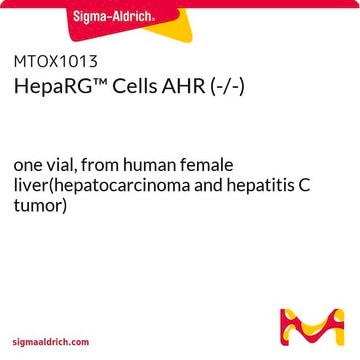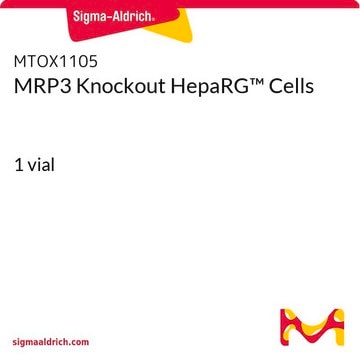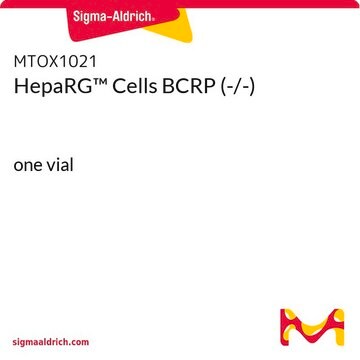MTOX1010
HepaRG™ 5F Control Cells
human female liver (Source Disease: Hepatocarcinoma and Hepatitis C)
Synonym(s):
Human hepatocyte cells
About This Item
Recommended Products
product name
HepaRG™ 5F Control Cells, 1 vial
biological source
human female liver (Source Disease: Hepatocarcinoma and Hepatitis C)
Quality Level
form
liquid
storage temp.
−196°C
General description
Application
Features and Benefits
Quality
Legal Information
Disclaimer
Storage Class Code
12 - Non Combustible Liquids
WGK
WGK 3
Flash Point(F)
Not applicable
Flash Point(C)
Not applicable
Certificates of Analysis (COA)
Search for Certificates of Analysis (COA) by entering the products Lot/Batch Number. Lot and Batch Numbers can be found on a product’s label following the words ‘Lot’ or ‘Batch’.
Already Own This Product?
Find documentation for the products that you have recently purchased in the Document Library.
Customers Also Viewed
Articles
Oral drug delivery involves dissolution in the small intestine and absorption across the enterocyte barrier into the portal vein followed by subsequent delivery through the liver into the systemic circulation.
Our team of scientists has experience in all areas of research including Life Science, Material Science, Chemical Synthesis, Chromatography, Analytical and many others.
Contact Technical Service









